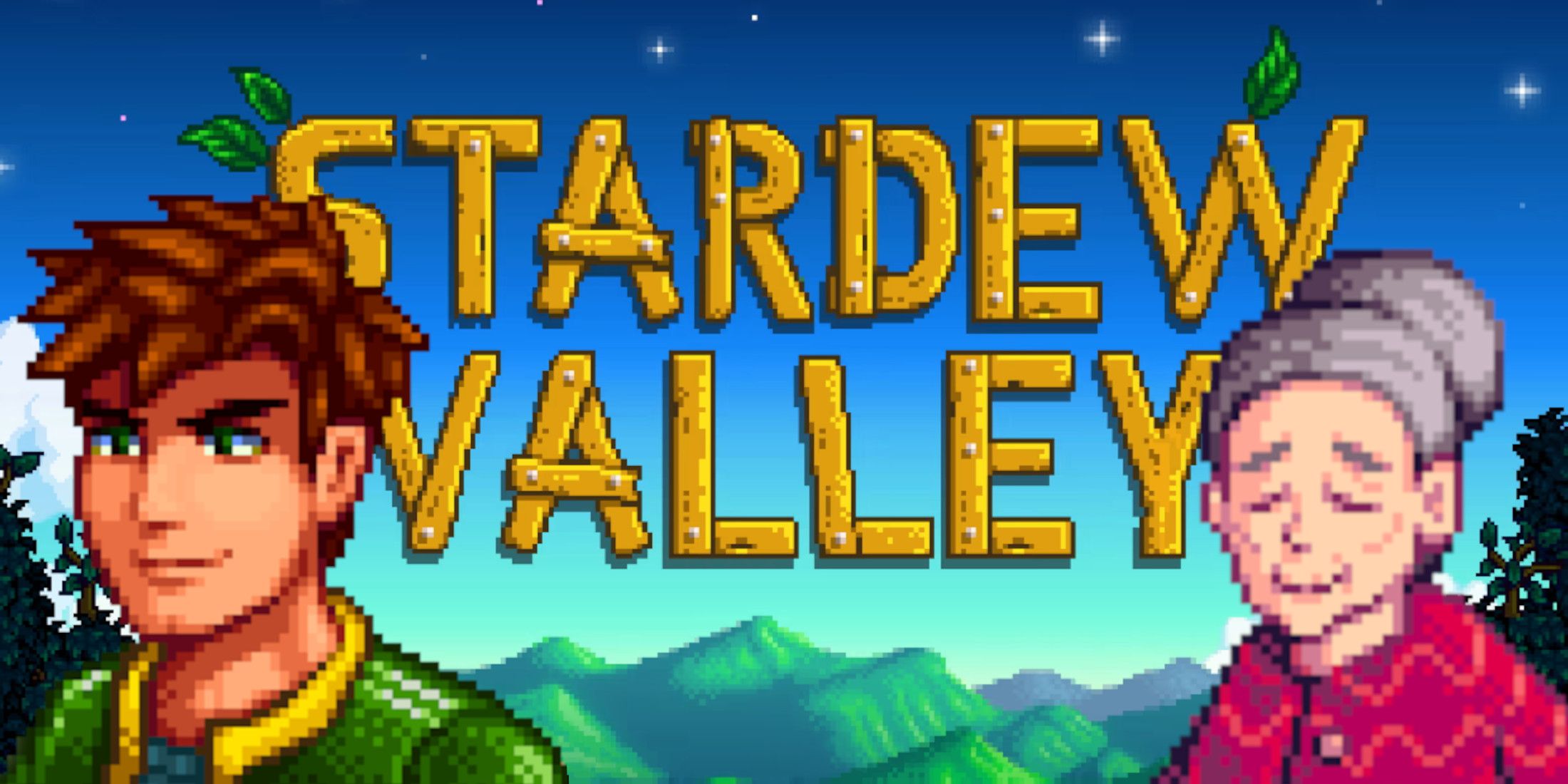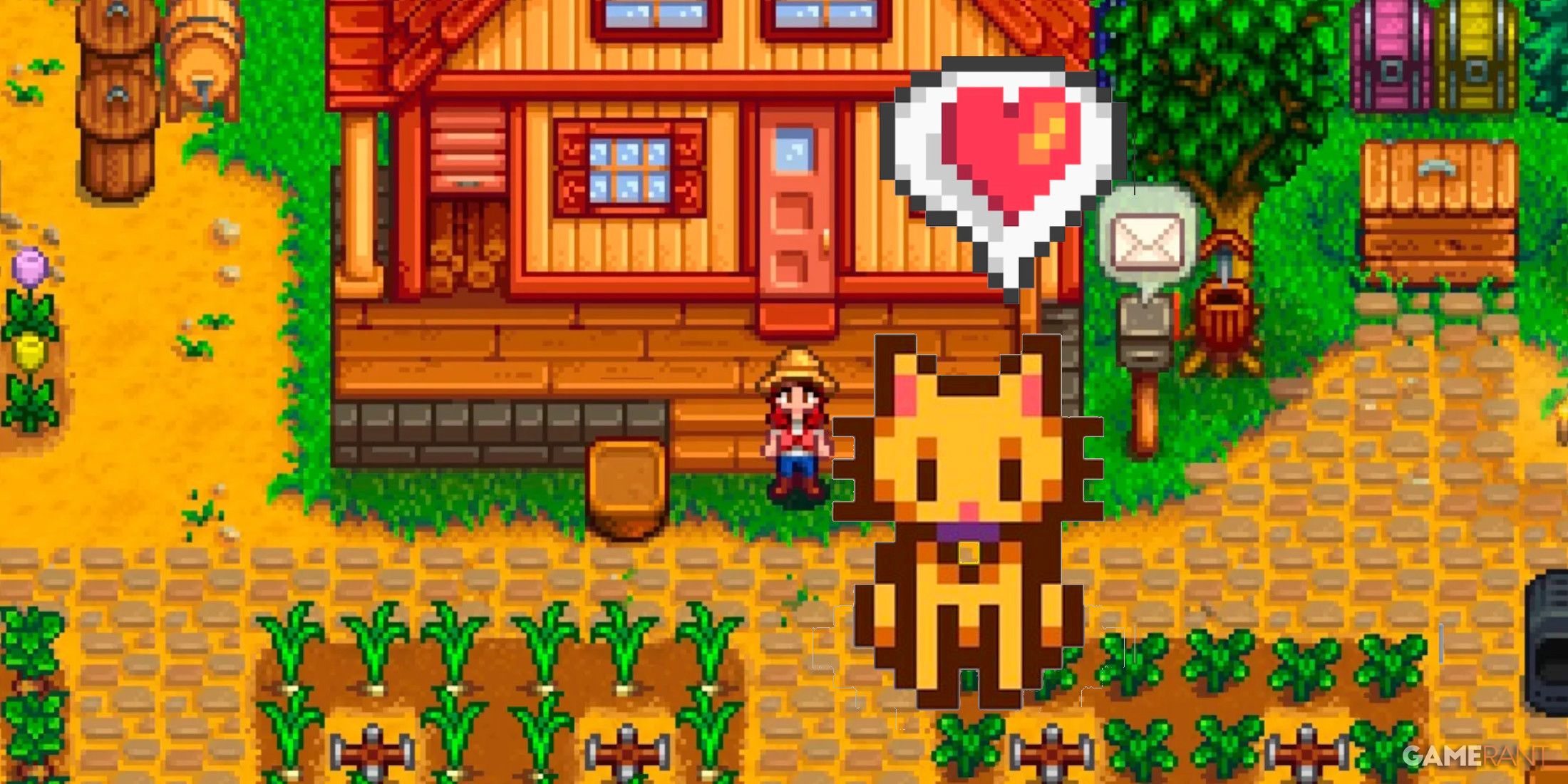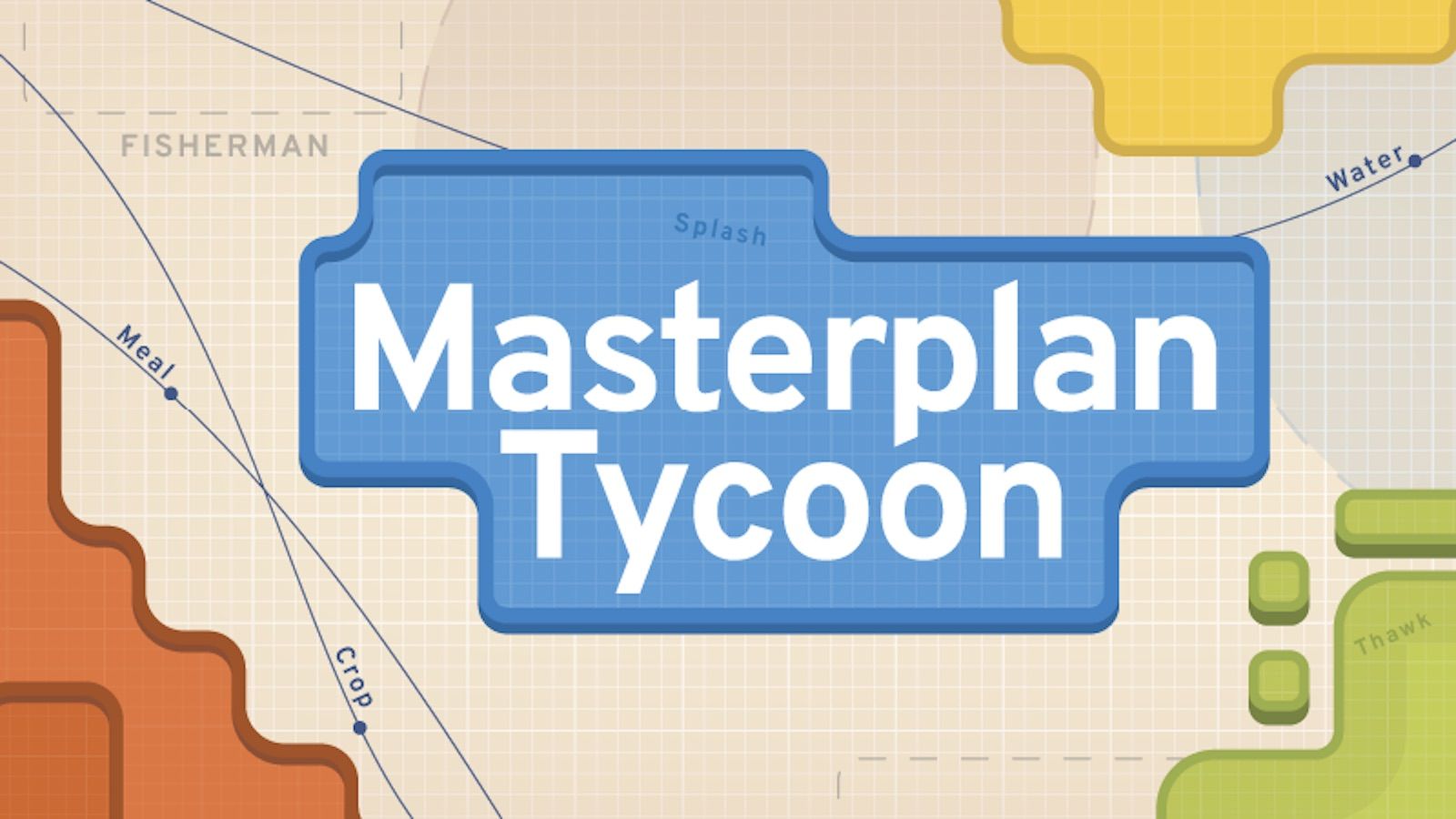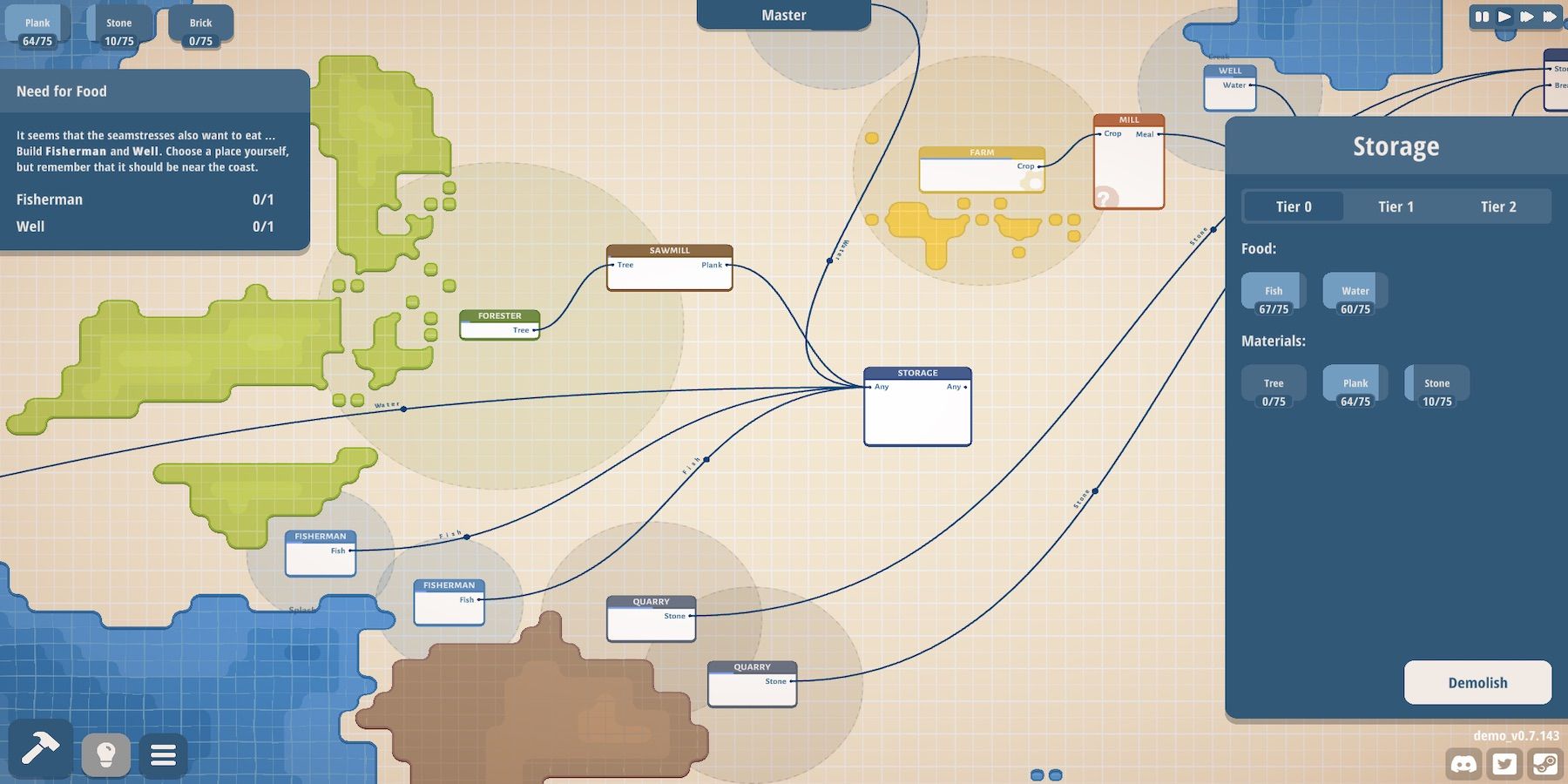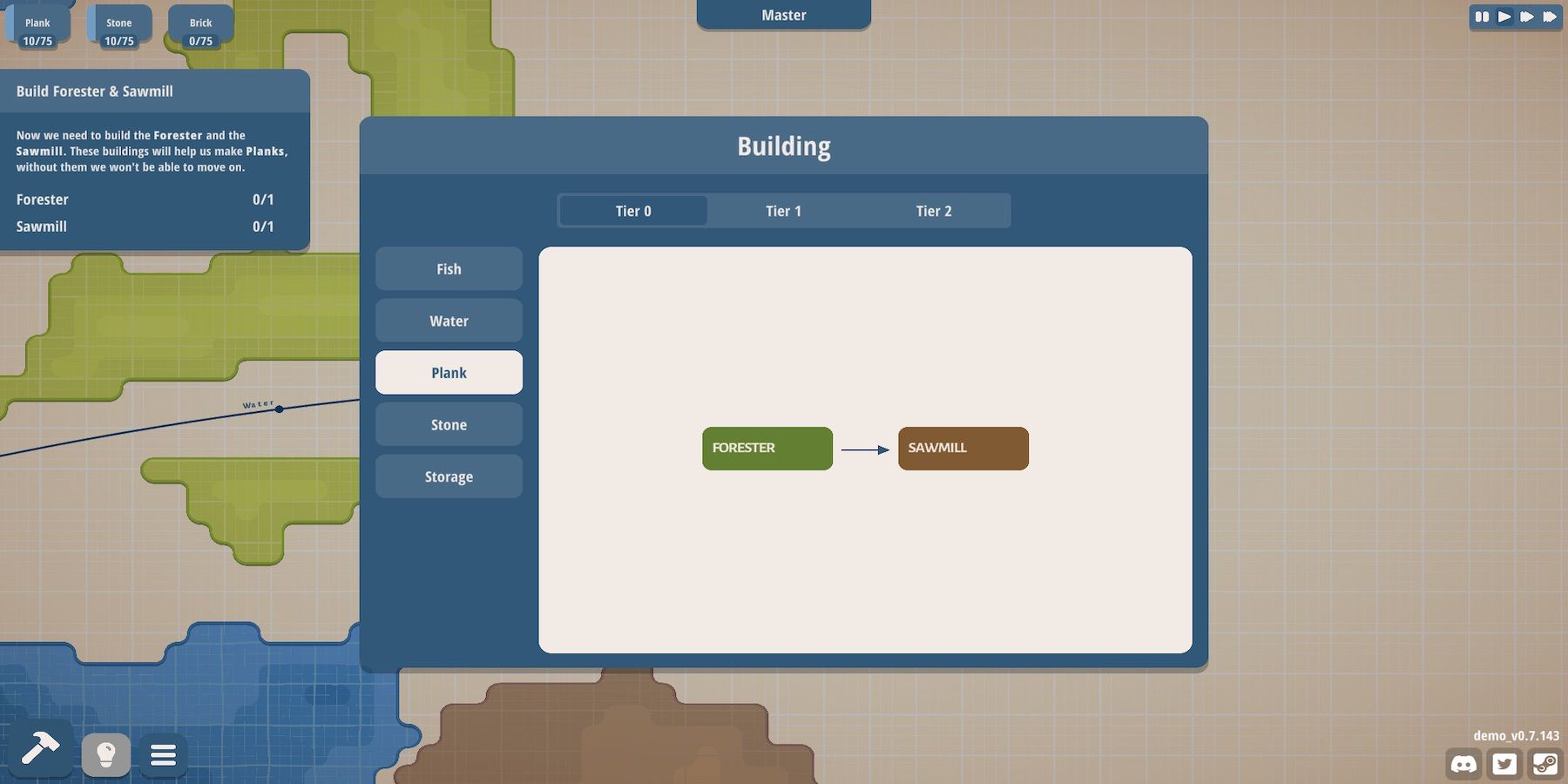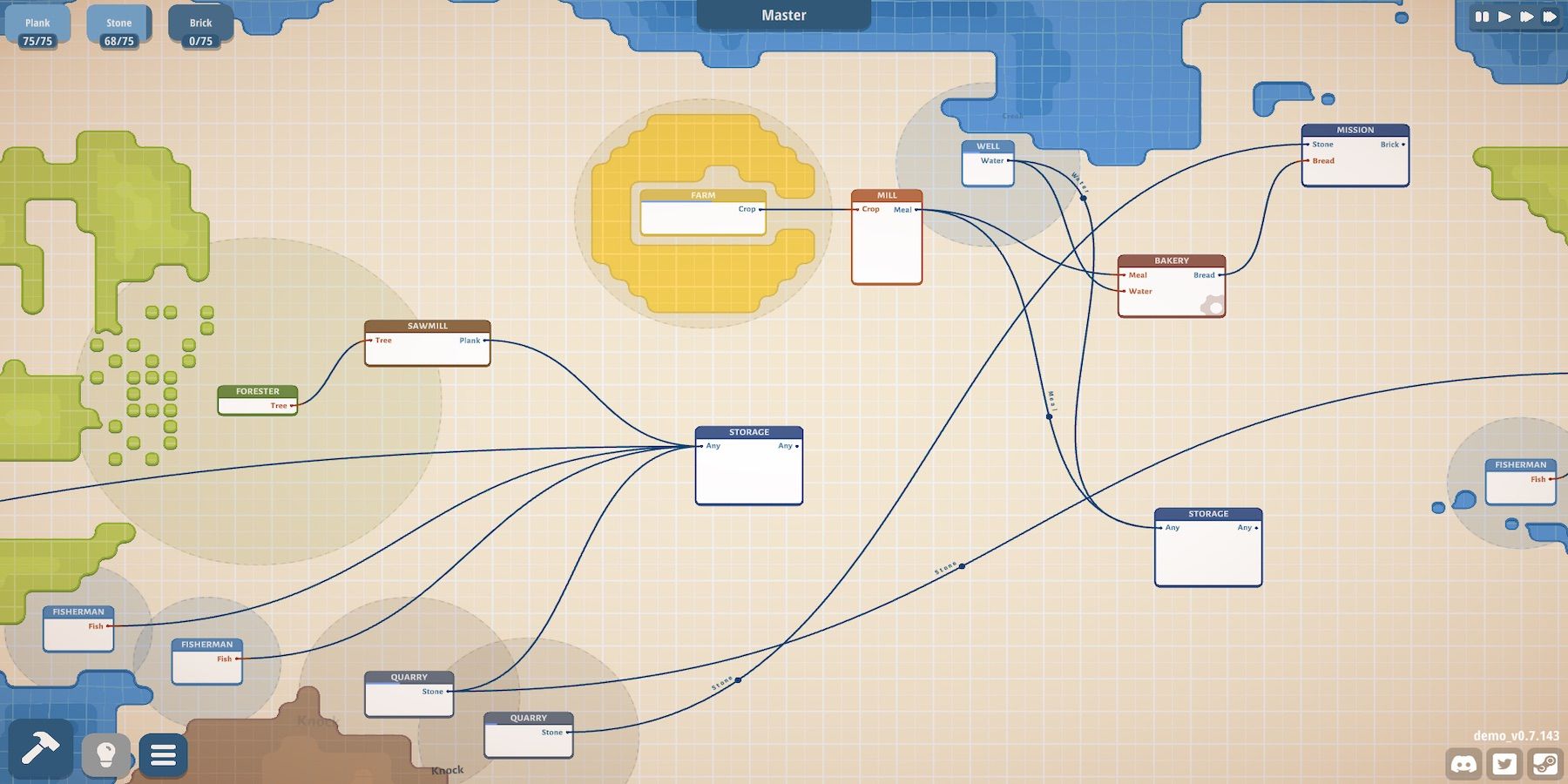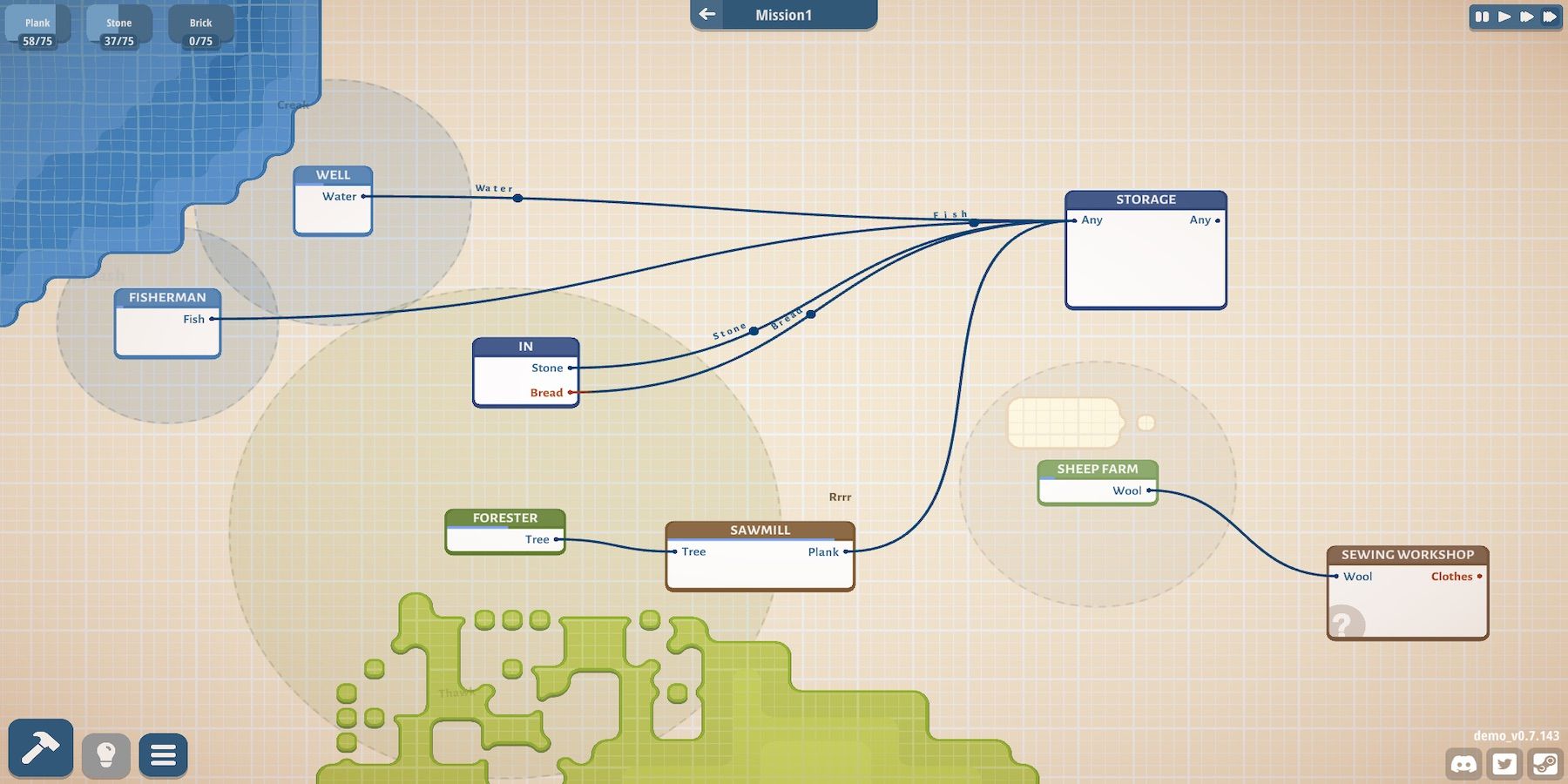A game that describes itself as a “logistics chain simulator” doesn’t immediately sound like one geared toward a more casual audience. But, for Bureau Bravin, the solo dev behind the upcoming title Masterplan Tycoon, that’s exactly the goal.
A lover of the strategy genre and a self-described member of the “older generation” of gamers, Bravin said he was inspired, via a programming tool, to create a resource-management sim that would be easy for the average person to digest. Game ZXC sat down with Bravin to talk about how he accomplished that aim in Masterplan Tycoon. The following transcript has been edited for clarity and brevity.
Q: What inspired you to develop a game like Masterplan Tycoon?
A: I'm actually a programmer in my day job, and programmers in the game industry like to write and use visual development environments. One example is a feature known as node editors, which allow you to see connections between different data points. One day, I was working on a few things in the Unity shader engine Shader Graph, and I realized I was fascinated by the process of arranging and linking nodes. I wanted the nodes to all be in one row, like on a ruler, and for the links to intersect with each other as little as possible. It doesn't make any difference in terms of functionality, but I still spent time doing it.
I also love strategy games. When I was a kid, I was all about Theme Hospital, The Settlers 2, and Warcraft 2. At a certain point, it dawned on me that I could mix these two things together. Nodes could be buildings, and links could be the roads between them. In a strategy game, it would matter how the nodes are arranged and interconnected.
I put the idea on the back burner for a while, but I just couldn't shake it. When the next Ludum Dare game jam came around, I finally brought the idea to life and made the very first prototype of Masterplan Tycoon in 2019.
Q: Can you explain the core gameplay mechanics of your game and how they relate to the theme of resource management?
A: Masterplan Tycoon is all about mechanics. They take center stage in the game. There are three main components: buildings, links, and resources. Players chain them together to move forward. But unlike node editors, in Masterplan Tycoon it's important how buildings are positioned and how long the links are. The productivity of the whole system depends on it. But you're also free to build your system to make it look how you want, even though it might not be as efficient as possible.
Q: How do players acquire and manage resources in your game?
A: Chains always begin when you extract a resource from a resource area (forest, plantation, coal deposit, etc.). Then the resource is transformed through a group of buildings into something that can be used to operate the system or expand it. Resources and chains can also intersect with each other. So at some point, you may find that some resources you got previously can now be used in a new chain in a new way.
Q: Can you describe the different types of logistics chains that players can build in your game and their impact on gameplay?
A: There are several types of chains that produce food, clothing, or building materials. There are also chains that expand gameplay. For example, at a certain point ports are unlocked, and you can make links on the water.
Q: How does your game handle player failure and success in terms of resource management and logistics chain building? What kind of challenges do you see players facing in terms of balancing resource acquisition and logistics chain expansion?
A: This is important when it comes to game design. I consider myself an older gamer. It's harder for people like me to understand all the mechanics of 4X strategy games and similar genres. But even if I could, taking a break and coming back to the game six months later is torture. I wanted Masterplan Tycoon to be different. It doesn't even have a clear definition of losing. The game won't run out of resources, and rebel settlers won't sack your cities. The only thing that can hurt you in the game is time. If the chains don't work efficiently enough, the system starts slipping and it's your job to right the ship. Plus, the landscape adds a great touch, too.
Q: Can you talk about any unique or innovative features that set your game apart from other resource management and logistics chain-building games?
A: As I said before, what sets the game apart is how little it punishes players. Most resource games are pretty hardcore, where the most important thing is how detailed the production chain is broken down into components. I wanted to make a game with a similar experience, just without all the extra stuff. The main thing was not to overdo it, or the game would've turned into a puzzle like Mini Metro. I wanted to do something in the middle, and in my opinion, we succeeded.
Q: How does the minimalist visual style of the game support the gameplay and theme?
A: I decided on this visual style for a few different reasons. Firstly, because it's a node system, which is how everything got started in the first place. Anything else would move us further away from this concept. Secondly, from the very start, this game was conceived as a one-man project. But a lot of people still helped me shape the visual style. If it looked any different, I would've had a hard time ever finishing it. Plus, I think it's a good testing ground for experiments and thinking outside the box. Realistic 3D graphics have their limits. I think we're getting close to the time when 3D objects on a monitor won't look any different from what we see in the real world. But non-realistic visual styles are in a whole different category.
Q: How does your game promote replayability and long-term engagement for players?
A: Strategy games usually have a very long playtime. I can't say I've ever been able to play a single modern strategy game to the end. For example, in Anno 1800, I only finished the main campaign, even though there are all kinds of other content too. As I said, I'm in the older generation of gamers. I don't want to spend 40 hours playing a game, then another 200 hours doing all the side quests. Masterplan Tycoon is unique in its own way here too. Our game is not that huge, but we'll definitely be releasing some content updates to give people the chance to play more too. However, I'll say it again: Masterplan Tycoon is more like an ascetic tourist, not a trucker who spends his whole life on the road.
Q: What are some ways you plan to update and evolve the game post-launch? When exactly will the game launch?
We've got a few ideas in the works for updates. I don't want to release just a new set of nodes and locations, so each update needs new elements of gameplay. I just don't know how many yet. As many as we can make work! We've already got some solid ideas ready.
Q: As an indie studio, what were the challenges you faced in development? How did the team overcome those hurdles?
This is the first project I'm doing on my own. The biggest problem is that the game dev industry isn't a fan of solo developers. It's considered too risky, even compared to a team of two people. What helped me is my experience in game companies for more than eight years, so I have all the experience I need to evaluate what I'm capable of objectively. This helped me understand what kind of game I could make in the time I had. And this turned out to be good enough for the Ravenage team to want to publish Masterplan Tycoon. A big shout-out to them! The rest is just planning, putting in the work, and bringing it to life. Step by step, we're moving right on track to release.
[END]
Masterplan Tycoon will release on March 9 on PC.


